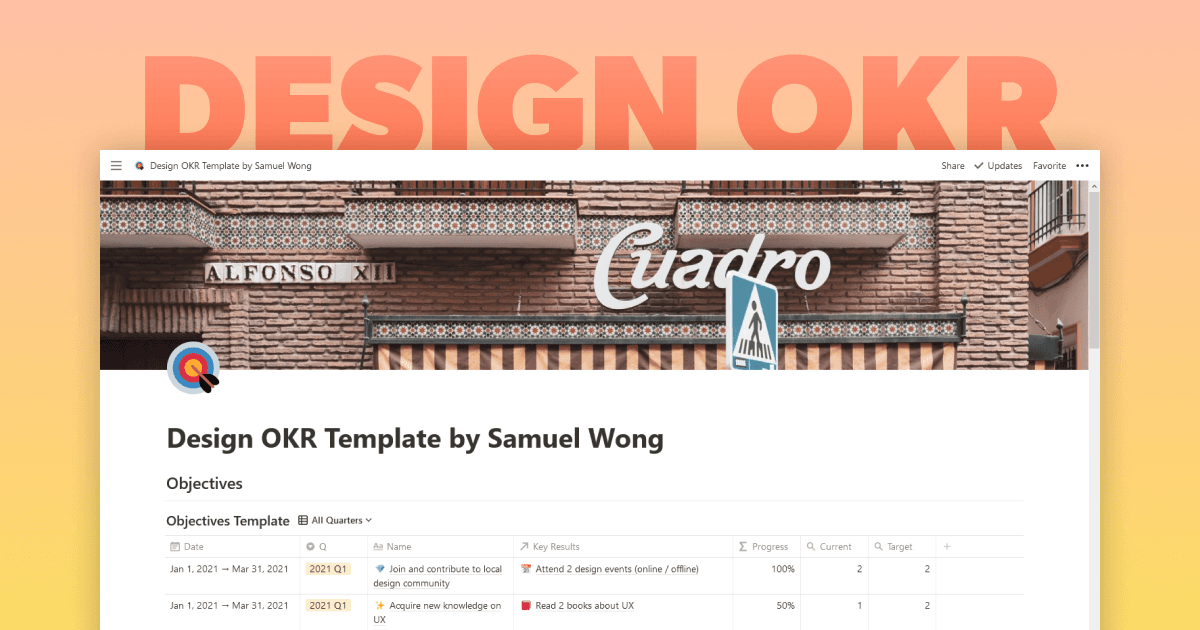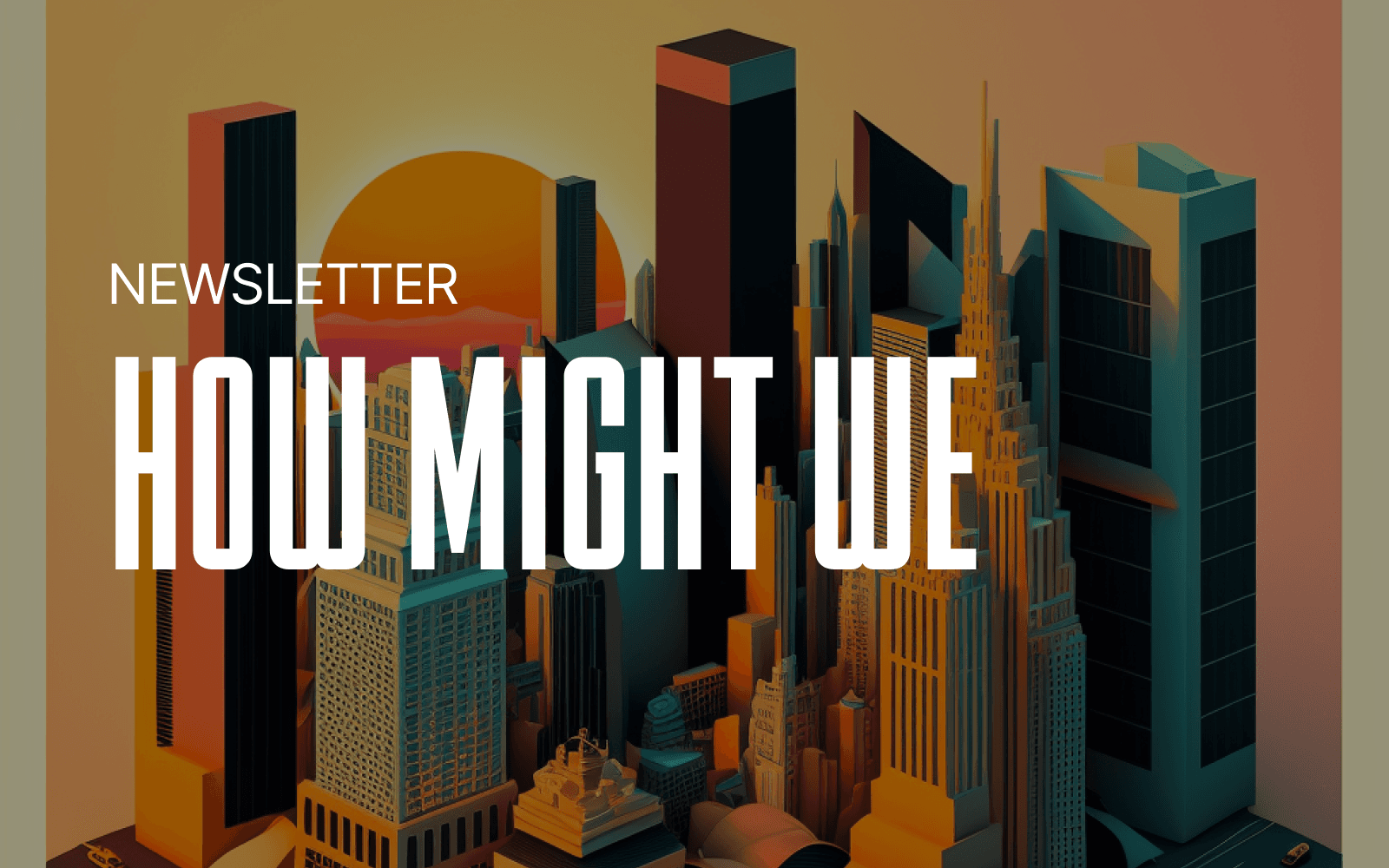Navigating Design Career with Design OKRs
Goal setting framework to progress your UX career

Finding the right path in your design career can be difficult. When you don't realize the goals or don't know if you are making progress every day. OKRs (Objectives & Key Results) is a goal framework adopted by companies like Google to define and track goals. Instead of using it for company goals and business objectives, I'm using the same methodology for personal career planning, Here're my experience and reflection practicing Design OKRs for the last 8 months.
Background
Currently working as a UI/UX consultant in Hong Kong. I have been working in the field of UI/UX and product design for the past 6 years. I will be focusing this article on progressing the design career and as well as job application process.
I first read about OKR for self-learning, is from Sophia Li's github page. I already knew about OKRs back then but it never occurred to me to use it personally. It was a hard time for me as I was on furlough in my previous company after the initial wave of COVID-19. There was not even a timeline on when I could get back to work. Reading Sophia's progress and her OKR planning was a revelation. I started to use it for planning my career, tracking my progress for job hunting.
What is OKRs?
The definition of “OKRs” is “Objectives and Key Results. What it means, is to set goals and track the progress regularly (usually by quarters). One important thing to note, is that objectives have to be supported by measurable key results, usually with numbers. Career-wise, it may be difficult to find things to measure, but it's okay. Numbers do not need to be big to be succesfful, my results usually are small, like 3 people to review my portfolio, complete 2 courses.
Switching OKRs for Career Planning?
![]()
I started with 3 questions that I want to be candid with myself:
- What kind of skill sets and experience am I hoping to achieve and have?
- What is my definition of success in this career?
- What direction am I heading towards right now?
These answers have become the early objectives in my OKR. I wanted to be more experienced in the UX side of work, to prepare for job search and to engage with the design community. Therefore, my objectives for 2020 Q3 were:
- Familiar myself with analytics and user research
- Participate and contribute to design community
- Land a UX job offer
Based on these objectives, I thought of some key results that I would like to achieve that will bring me closer to the goals. Like completing the free Google Analytics & Google Tag Manager courses, write 5 blog articles about tech and design, research on 10 companies that I love to work for and check their job requirements. Be mindful not to have a big task, try break it down that you can achieve within a month.
Strictly speaking, OKR advise not to write a task directly as a key result, but I think in career planning's case, the outcome could be the task as well. We can be flexible on this matter as long as these tasks can help achieve the objectives.
How to use Design OKR? Design OKR template for you to kickstart
I'm opening up my own Notion OKR template for free here. You can duplicate it by clicking the top right "Duplicate" button and start your reflection right away. I have created some useful key results and objectives as a dummy.
![]()
- Fill in the "Objectives" table, mark the start and end date, set it as "2021 Q2", add the name of the objective. Rest of the table will populate automatically when Key Results have been filled.
![]()
- Then, you can now fill in "Key Results" table. Select Objectives first, it will auto roll up options for choosing. Each row is for 1 key result but you create multiple key results belong to the same objective. Just like Land a full-time UX Job has 4 key results. Key results are almost always defined with numbers, so you can measure the success. You should also fill the target value. At the end of each month, you will update your progress to Month 1 / 2 / 3 columns. You may also want to log your accomplishment in the Descriptions column too.
![]()
- You can also switch between different table views. I have added some views according to time, like Current / All / Off-track etc. Timeline view will also let you to browse in a gantt chart.
![]()
Plan, Focus, Reflect: A loop to make progress
Just like this, work on delivering your key results every day and take an uninterrupted hour at the end of each month to reflect, plan and mark your progress in Notion. Finding a friend hosting the review session with yourself is also useful too.
For me, the target was a bit ambitious and I did not complete all the objectives and tasks that I have set at the beginning of the quarter. Frankly, only few tasks have met the target. But I am very satisfied with this framework, which allows me to set a clear direction and to review it regularly.
I asked myself,
Am I making any progress to this objective?
Most of the time the answer is resounding YES. The process of breaking down objectives into concrete actions plans are very helpful. Laying out each step also means you are forcing yourself to have a plan to make it happen.
However, if some key results that are not completed for months, don't blame yourself for being lazy or useless, a change in perspective might help you to realize the issue. Is the key result not specific enough? Can I break down the task even more? Is there any blocker that is dragging you?
For example, I have a key result to be invited to speak at design events or conference for the past year now. But in retrospective, what can I talk about even if I got invited? Should I research and write about some of the topic first? What if I research on conferences that I can submit my own topic first? What if Design OKR is the thing I should talk about? Adjust the plan accordingly and revise your Key Results for the next quarter and try again.
OKR for Job Searching
The same philosophy of OKR applied to job searching as well. I'm extremely grateful that I received job offer during the pandemic. Being able to practice Design OKR is one of the things that I'm thankful for.
![]()
The objective is very clear, "Land a UI/UX Designer job in a design team". You might noticed I added "in a design team". As I was working alone before, working & learning from more designers was my high priority too, it's nice to make it prominent and remind myself to stick to the goal. After that, I worked back on what I need to achieve in order to secure an offer. I listed the number of interviews in each stage that I expect to secure an offer. Feel free to adjust the numbers according to your expectations.
Another objective I added aside from job application, is to "Gather all the necessary job application materials" (E.g. Resume, cover letter, portfolio). It took some time for me to organise assets and deliverables of past projects, so it is great to keep track separately. Bear in mind, your portfolio should be constantly evolving after each interview session. Iterations & revising a better angle to tell your design story are the secret of a successful portfolio.
Last but not least, I have also added a key result to "Receive X feedbacks for job application materials". I reached out to friends, colleagues, and mentors for feedback. Even without much help, there are some useful online portfolio review that you can attend to, or watch some of live streams.
To Be Continued...
If you read this far, thank you for reading!
Atomic Habit by James ClearHabits are the compound interest of self-improvement. The same way that money multiplies through compound interest.
This quote shares the same way I feel when I practice Design OKR. As long as I'm incrementally better than myself yesterday, no matter how small the changes I make, it could have compound effect toward a success. Now that a big objective of my Design OKR has completed, I'm still searching for my next one, could be building my own product, earning side income, or for real to speak at design events. Before that happens, let me know what you think about this approach on Twitter and I would love to answer any of your questions!

